Frequently Asked Questions
When should I refinance?
What are points?
Should I pay points to lower my interest rate?
Paying discount points to lower the loan’s interest rate is a good way to lower your required monthly loan payment, and possibly increase the loan amount that you can afford to borrow. However, if you plan to stay in the property for less than 5 years, your monthly savings may not be enough to recoup the cost of the discount points that you paid up-front. Please discuss this topic with one of our mortgage bankers. A deep analysis often shows that most consumers should not pay points when they finance their home.
What is an APR?
-
Points – both discount points and origination points
-
Pre-paid interest. The interest paid from the date the loan closes to the end of the month.
-
Loan-processing fee
-
Underwriting fee
-
Document-preparation fee
-
Private mortgage-insurance
-
Escrow fee
-
Title or abstract fee
-
Borrower Attorney fee
-
Home-inspection fees
-
Recording fee
-
Transfer taxes
-
Credit report
-
Appraisal fee
What does it mean to lock the interest rate?
What documents do I need to prepare for my loan application?
Your Property
-
Copy of signed sales contract including all riders
-
Verification of the deposit you placed on the home
-
Names, addresses and telephone numbers of all realtors, builders, insurance agents and attorneys involved
-
Copy of Listing Sheet and legal description if available (if the property is a condominium please provide condominium declaration, by-laws and most recent budget)
Your Income
-
Copies of your pay-stubs for the most recent 30-day period and year-to-date
-
Copies of your W-2 forms for the past two years
-
Names and addresses of all employers for the last two years
-
Letter explaining any gaps in employment in the past 2 years
-
Work visa or green card (copy front & back)
If self-employed or receive commission or bonus,interest/dividends, or rental income:
-
Provide full tax returns for the last two years PLUS year-to-date Profit and Loss statement (please provide complete tax return including attached schedules and statements. If you have filed an extension, please supply a copy of the extension.)
-
K-1’s for all partnerships and S-Corporations for the last two years (please double-check your return. Most K-1’s are not attached to the 1040.)
-
Completed and signed Federal Partnership (1065) and/or Corporate Income Tax Returns (1120) including all schedules, statements and addenda for the last two years. (Required only if your ownership position is 25% or greater.)
If you will use Alimony or Child Support to qualify:
-
Provide divorce decree/court order stating amount, as well as, proof of receipt of funds for last year
If you receive Social Security income, Disability or VA benefits:
-
Provide award letter from agency or organization
Source of Funds and Down Payment
-
Sale of your existing home – provide a copy of the signed sales contract on your current residence and statement or listing agreement if unsold (at closing, you must also provide a settlement/Closing Statement)
-
Savings, checking or money market funds – provide copies of bank statements for the last 3 months
-
Stocks and bonds – provide copies of your statement from your broker or copies of certificates
-
Gifts – If part of your cash to close, provide Gift Affidavit and proof of receipt of funds
-
Based on information appearing on your application and/or your credit report, you may be required to submit additional documentation
Debt or Obligations
-
Prepare a list of all names, addresses, account numbers, balances, and monthly payments for all current debts with copies of the last three monthly statements
-
Include all names, addresses, account numbers, balances, and monthly payments for mortgage holders and/or landlords for the last two years
-
If you are paying alimony or child support, include marital settlement/court order stating the terms of the obligation
-
Check to cover Application Fee(s)
How is my credit judged by lenders?
What can I do to improve my credit score?
-
Have you paid your bills on time? Payment history typically is a significant factor. It is likely that your score will be affected negatively if you have paid bills late, had an account referred to collections, or declared bankruptcy, if that history is reflected on your credit report.
-
What is your outstanding debt? Many scoring models evaluate the amount of debt you have compared to your credit limits. If the amount you owe is close to your credit limit, that is likely to have a negative effect on your score.
-
How long is your credit history? Generally, models consider the length of your credit track record. An insufficient credit history may have an effect on your score, but that can be offset by other factors, such as timely payments and low balances.
-
Have you applied for new credit recently? Many scoring models consider whether you have applied for credit recently by looking at “inquiries” on your credit report when you apply for credit. If you have applied for too many new accounts recently, that may negatively affect your score. However, not all inquiries are counted. Inquiries by creditors who are monitoring your account or looking at credit reports to make “prescreened” credit offers are not counted.
-
How many and what types of credit accounts do you have? Although it is generally good to have established credit accounts, too many credit card accounts may have a negative effect on your score. In addition, many models consider the type of credit accounts you have. For example, under some scoring models, loans from finance companies may negatively affect your credit score.
What is an appraisal?
What is PMI (Private Mortgage Insurance)?
What happens at closing ?
Office Hours
| Monday | 8AM–5PM |
| Tuesday | 8AM–5PM |
| Wednesday | 8AM–5PM |
| Thursday | 8AM–5PM |
| Friday | 8AM–5PM |
| Saturday | 8AM–5PM |
| Sunday | Closed |
***Disclaimer: This calculator is offered for illustrative and educational purposes only and it is not intended to replace a professional estimate. Calculator results do not reflect all loan types and are subject to individual program loan limits. All calculations and costs are estimates and therefore, Equitable Mortgage (EMC) does not make any guarantee or warranty (express or implied) that all possible costs have been included. The assumptions made here, and the output of the calculator do not constitute a loan offer or solicitation, or financial or legal advice. Please connect with an EMC loan professional for a formal estimate. Every effort is made to maintain accurate calculations; however, EMC assumes no liability to any third parties that rely on this information and is not responsible for the accuracy of rates, APRs or any other loan information factored in the calculations.


